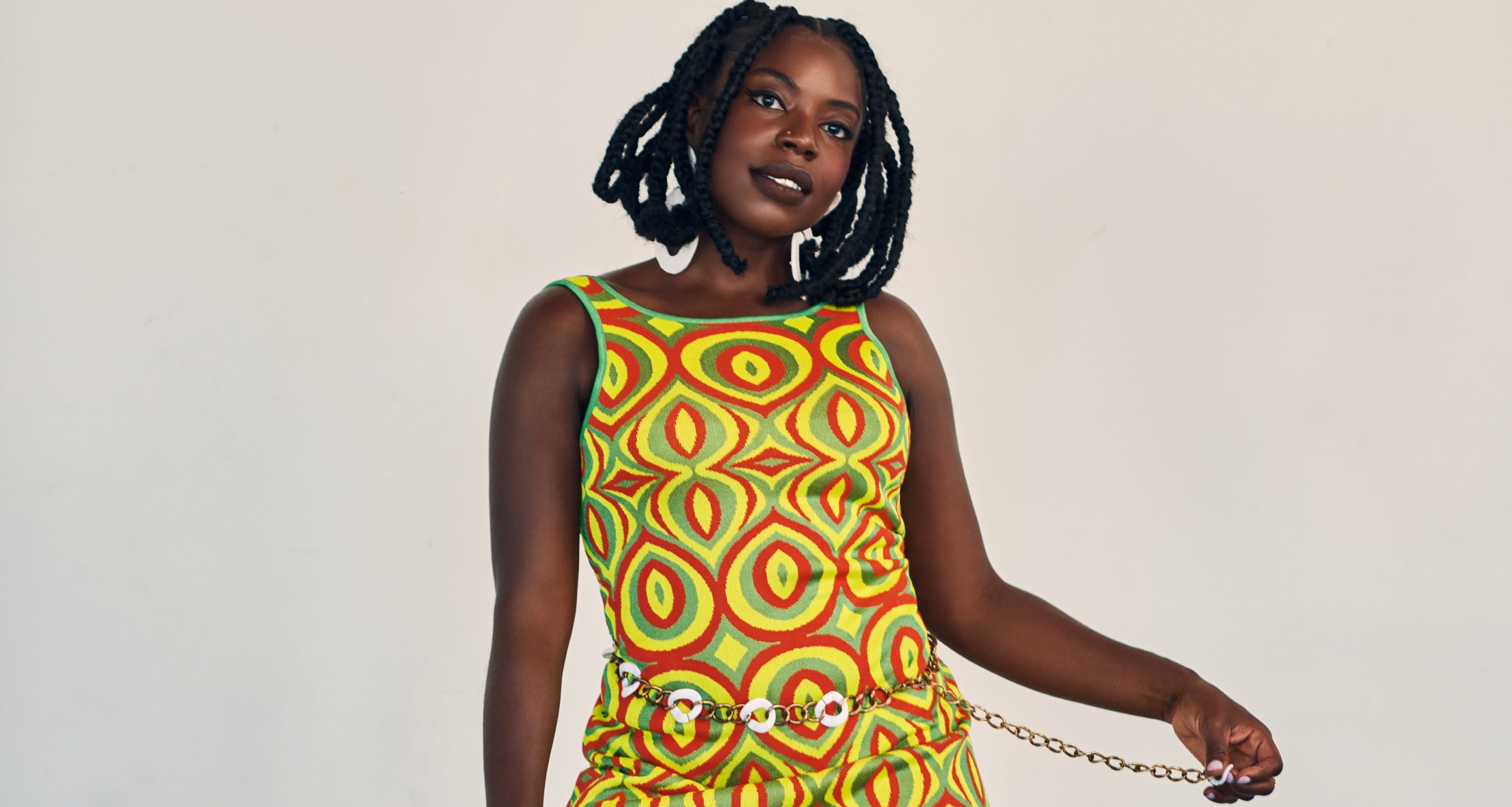It may sound like a bold move to devote your major label debut to reworking classic songs by the likes of the songwriters you idolize most, such as Ella Fitzgerald, Billie Holiday, Sarah Vaughan, and Dinah Washington, with the mission statement of “making jazz trill again” while also interpolating the sounds of early-2000s R&B and elements that are a little more twerk-able. And yet the boldly titled Y’all Don’t (Really) Care About Black Women leans fully into both modernity and reverence for the project’s subject matter, with Melanie Charles’ creativity on full display.
Throughout the album we get whiffs of the original tracks—such as on “Detour Ahead” where Sarah Vaughan’s original vocals open the piece—which serve as a jumping off point for Charles to incorporate synth grooves and playful percussion into the anachronistic sound of jazz piano. Meanwhile, “Pay Black Women Interlude” merges traditional jazz arrangements with spoken word recalling the skits that break up hip-hop records. It’s some of the best sounds of the past mixed with some of the best sounds of the present, forging something nearly futuristic in its experimental fusion.
With the album out now via Verve, Charles took the time to walk us through the project track by track, sharing how each song was built up from its original source to the final recording. Stream the LP below, and read on for her insights.
1. “God Bless a Child”
“God Bless a Child” is a song that my mom spoon fed me when I was a little girl. My mom is very close to me and I was inspired by how close Billie Holiday was with her mother. I was especially moved by the fact that Billie Holiday wrote “God Bless a Child” after a heated discussion with her mother.
2. “Perdido”
My mom always wanted me to get into Ella’s version of this song; but I discovered Dinah’s version in the Verve catalog. I love her sass on the song! Interestingly, the year she dropped this song, she received an award for it in the R&B category.
3. “Detour Ahead”
I recorded this song years ago at Strange Weather Studios in Brooklyn with Daniel Schlett; even before Verve approached me. This track consists of two drummers, Marcus Gilmore and Ignabu. During the lockdown I developed the piece more and more by adding the Barber Shop vocals around Sarah Vaughan’s voice.
4. “All Africa (The Beat)”
On the anniversary of the Freedom Now Suite, I was invited to participate in a restaging of this master work in Asheville, North Carolina’s Black Mountain Museum in 2019. So I was really pleased to see that this piece was part of the Verve catalog.
5. “The Music Is the Magic”
I wanted to take on a song that was actually written by Abbey Lincoln. I love how she talks about the power and mysticism of this music. This song and “God Bless a Child” are the only two songs where I was able to bring my live band (Keith Brown, piano; Shedrick Mitchell, organ; Dezron Douglas, upright bass; Tayzaro, cello; Daniel Winshal, Juno synth) into the studio because of the pandemic.
6. “Pay Black Women Interlude”
It’s an excerpt from a work in progress documentary that I’m developing called Love Letter to Jazz Girls, featuring Rena [Anakwe], KeyiaA, Salenta [Baison], and myself who are creatives, musicians, and close friends. At this moment, we’re talking about the frustrations of Black women getting underpaid.
7. “Jazz (Ain’t Nothing But Soul)”
“Jazz (Ain’t Nothing But Soul)” is very dear to me because it embodies my “Make Jazz Trill Again” mission; and I loved chopping Betty Carter’s voice and the horns.
8. “Go Away Little Boy”
This is my favorite song on the project. It gave me the opportunity to create an early-2000s R&B feel. To me, this is giving Alicia.
9. “Women of the Ghetto”
I had a really great time producing all the songs on this album. This song was my attempt at a house feel while incorporating the free flowing harp of Brandy Younger [who was featured in Beyoncé’s Homecoming doc]. Some of the issues Marlana Shaw addresses in this song were at the forefront of our everyday news cycle reminding us that these disparities and lack of resources is a reality for many people in this country, and all over the world.
10. “What a Difference”
Dinah sang this song so beautifully that I didn’t want to touch it; so I came up with a flute and sax arrangement to embellish the already-perfect song. And I love how this song features my brother, Rogerst Charles, on alto saxophone.
11. “Beginning to See the Light”
This song is my attempt at a pseudo Haitain Kompas groove, and it sort of settled in a pop/trap sort of feel. I just really hope people twerk to it.







